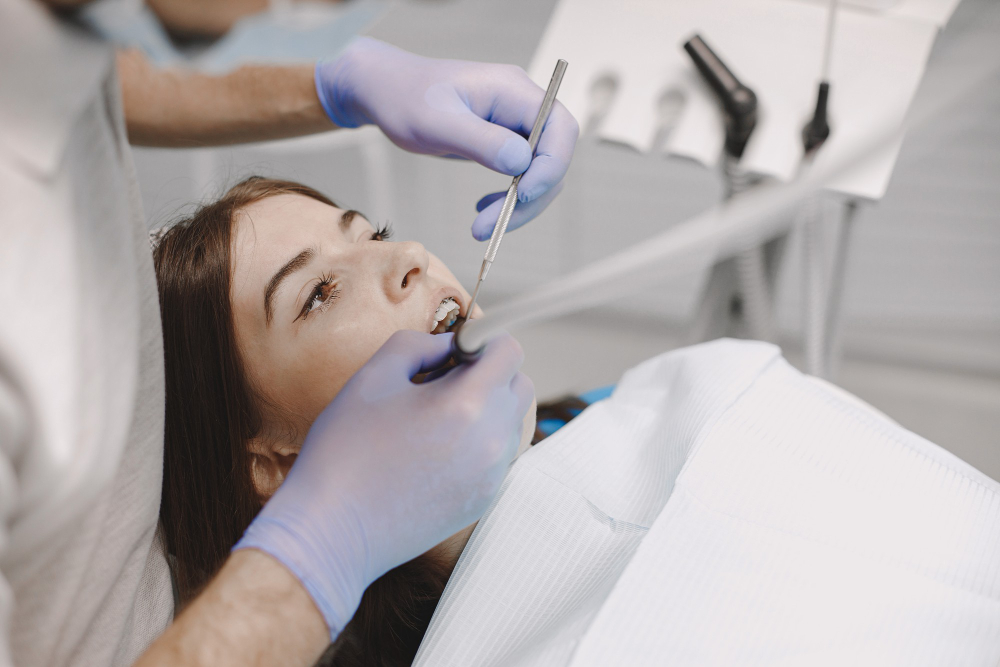

Third molars, or wisdom teeth, typically erupt in the late teens or early twenties. Some people may not have any difficulties with their wisdom teeth, but others might. If you face pain, swelling, or other dental issues, dentist might recommend wisdom teeth extraction. This article will explain the procedure, its benefits, and what to expect during recovery.
Wisdom teeth are the last set of molars located at the back of your mouth. The majority of people have four wisdom teeth, however some can have none at all or very few. Usually between the ages of 17 and 25, these teeth erupt. In the past, wisdom teeth helped our ancestors chew tougher foods. However, with modern diets, they are often unnecessary and can cause problems.
There are several reasons for extracting wisdom teeth:
The first step in the wisdom teeth extraction process is a consultation with dentist or oral surgeon. To ascertain the location of your wisdom teeth, they will take X-rays in addition to examining your teeth.
Based on this assessment, they will discuss whether extraction is necessary.
Before the extraction, the dentist will administer anesthesia to ensure you are comfortable during the procedure. There are a few options:
The extraction process typically follows these steps:
After the extraction, you will be moved to a recovery area where staff will monitor you as the anesthesia wears off. It is possible for you to have swelling and discomfort, but these can be controlled with prescription painkillers. It’s essential to follow the dentist’s post-operative care instructions to ensure a smooth recovery.
If you experience pain or discomfort due to wisdom teeth, extraction can provide immediate relief. Once the teeth are removed, you should notice a significant reduction in pain and discomfort.
Removing wisdom teeth can prevent more serious dental problems down the line. By extracting these teeth before they cause crowding, decay, or infection, you can maintain better oral health.
With wisdom teeth gone, it becomes easier to maintain good oral hygiene. You will have fewer hard-to-reach areas in your mouth, making it easier to brush and floss effectively.
Wisdom teeth can increase the risk of gum disease due to difficulty in cleaning. By removing them, you lower your chances of developing periodontal issues.
If your wisdom teeth cause crowding or misalignment, their removal can help maintain a straighter smile. This is especially important for those who have undergone orthodontic treatment.
Individual differences exist in the recovery following wisdom tooth extraction. Here’s what to expect:
In the first 24 hours, you may experience swelling and discomfort. Applying ice packs to the outside of your face can help reduce swelling. Take it easy during this period; rest is essential.
For the first few days, stick to soft foods like yogurt, smoothies, and applesauce. Steer clear of anything tough, crunchy, or hot that could aggravate the extraction site. Also, steer clear of hot liquids and straws, as they can dislodge blood clots essential for healing.
Dentist will likely schedule a follow-up appointment to ensure that your recovery is progressing well. They will check for any signs of infection and ensure that your gums are healing properly.
Over-the-counter pain medications can help manage discomfort. If you have severe pain or notice excessive bleeding, contact your dentist immediately.
After your mouth has healed, maintaining regular dental check-ups and practicing good oral hygiene will help ensure your overall dental health.

Wisdom teeth extraction can seem daunting, but understanding the procedure and its benefits can ease your worries. If you face issues with your wisdom teeth, consulting dentist is the best first step. They will assess your situation and help determine if extraction is necessary. With proper care, you can experience a smoother recovery and enjoy better oral health. Don’t hesitate to reach out to a dental professional if you have questions or concerns about wisdom teeth extraction. Your smile deserves the best care!